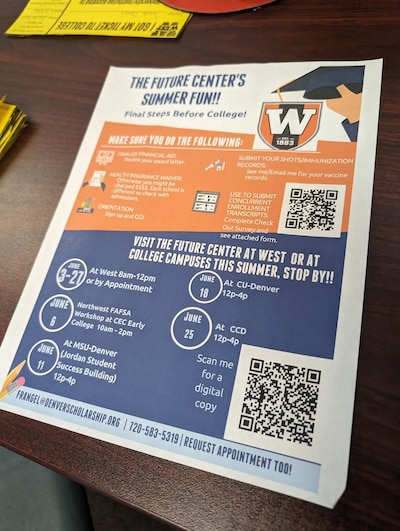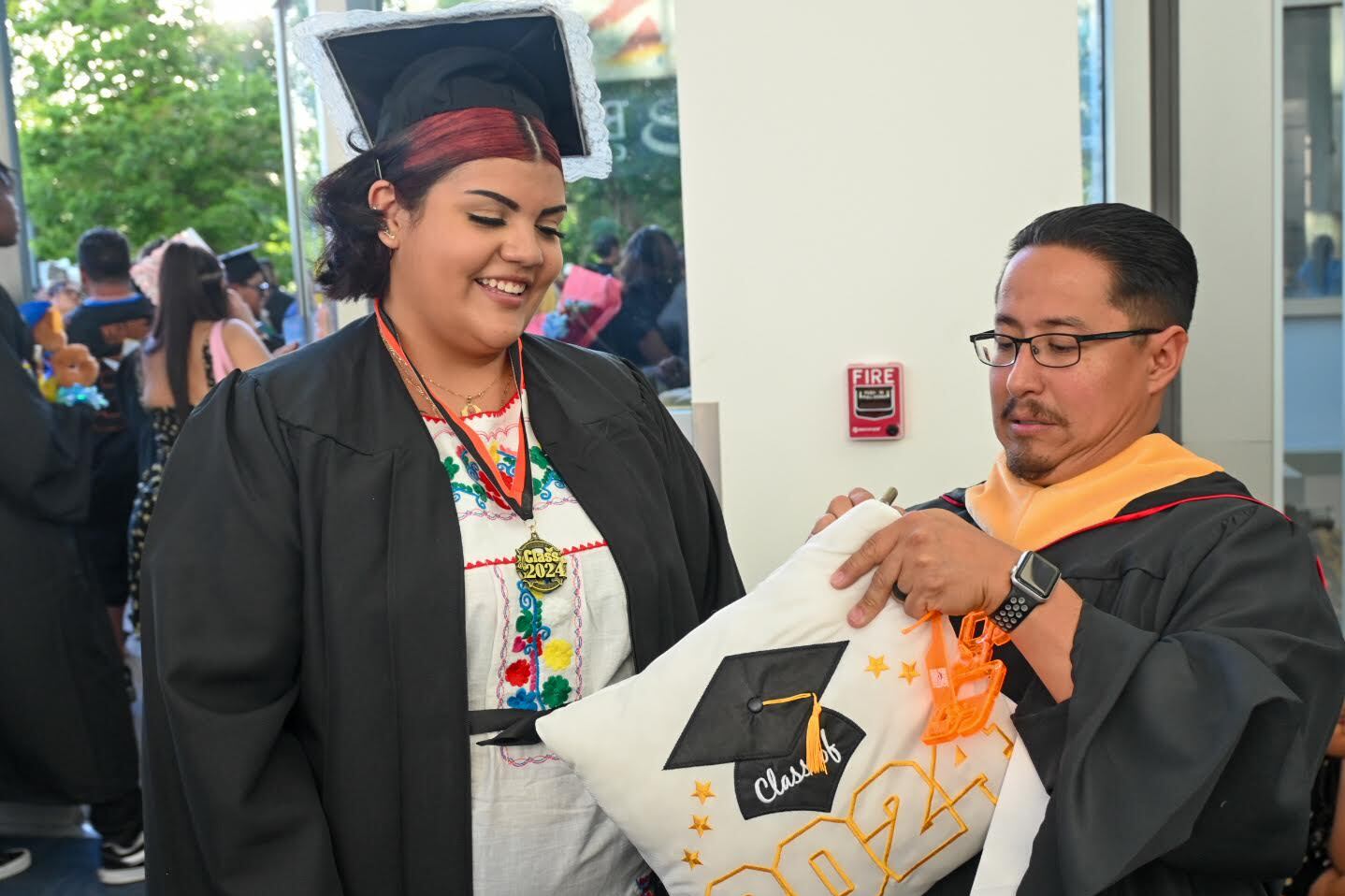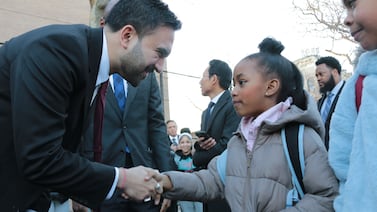Sign up for our free monthly newsletter Beyond High School to get the latest news about college and career paths for Colorado’s high school grads.
“I’m still around if you need help.”
In between handshakes and hugs, Federico Rangel spread that message on Tuesday to Denver West High School students and families celebrating graduation at the BellCo Theater. Rangel, a Denver Scholarship Foundation college adviser, knows that after all the smiles and excitement fade, the summer will mean more challenges for his students trying to get to college.
Many students across the country are heading into the summer still figuring out their college future after a botched rollout of the revamped FAFSA form this year. That’s increased concerns about “summer melt” — a common problem where students who say they intend to go to college don’t get there — especially among students from low-income backgrounds.
After a difficult spring, the concerns about summer melt only heighten worries about who will and won’t show up in the fall.
Read more: Here’s five tips for students who plan to go to college in the fall
Rangel, whose organization counsels students toward their college dreams and offers scholarships, will work overtime this summer to try to keep students motivated. He knows there’s only so much he can do now that students have left high school. In any given year, about a third to half of his students head to college in the fall.
“This year, it’s probably going to be a bit less than that,” he said, “but we’re going to do as much outreach as we can.”
Any decline in rates of students heading to college would be a troubling sign, college counseling experts said. As one of the more comprehensive college counseling services in the state, Denver Scholarship Foundation has proven to have plenty of success getting students support to go to college.
As one national counseling service leader said: “If they’re feeling their numbers are going to be down, think about the same types of students who aren’t getting that support.”
Issues stem from the U.S. Department of Education’s switch to a new, purportedly quicker FAFSA form this school year. But the rollout of the so-called Better FAFSA has been marred by technical problems.
Typically, students can begin to fill out the form on Oct. 1. This year, the form didn’t open to students and families until Dec. 31, and most students had problems completing the form even into April. In particular, students whose parents don’t have a Social Security number encountered issues filling out the online form.
In response to the problems, many colleges and universities have delayed the official student enrollment deadline to Saturday.
But on the last day of school in May, many Denver West students were still awaiting financial aid packages from colleges or had just received documents outlining the cost of college.
Students from low-income backgrounds rely on the student aid packages to understand whether they can afford a particular college. The aid packages detail the cost of going to school, including tuition, fees, and room and board. They also say how much in scholarships, work-study assistance, and federal and institutional aid a student will get.
Normally, Rangel said, “by April, students are already aware of their financial aid packages.”
Rangel, who during the school year roams the campus to track down students and help map out their college plans, would have been working on a checklist of items students need to have completed just before graduation ahead of starting college, such as signing up for orientation or submitting immunization records.

Instead, some students will have to navigate that list, or even decide on college and how much it will cost them, on their own. Although he can no longer find students in the halls of Denver West, Rangel will be busy working the phones this summer to make sure students have the information they need.
He plans to hold open office hours on the campus and former students can drop by to meet with him one-on-one.
“But it’s going to be even harder to do outreach,” Rangel said. “It’s going to be me trying to get in contact with them through the phone, through text message, or through email to get them to come in so that we can review information.”
With so few students getting the information they need to commit to a school, he also has to quell fears about the enrollment deadline. He’s told students and parents many times that it’s not their fault if they can’t make a decision yet — and that it’s going to be OK.
Many colleges and universities will still allow students to enroll after the deadline this week.
“They’re hurting for enrollment. Things are delayed and out of their control,” he said. “I don’t see the June 1 deadline as being a super, super hard deadline for colleges here in the state. But again, I am trying to allay fears and provide motivation.”
Jason Gonzales is a reporter covering higher education and the Colorado legislature. Chalkbeat Colorado partners with Open Campus on higher education coverage. Contact Jason at jgonzales@chalkbeat.org.






